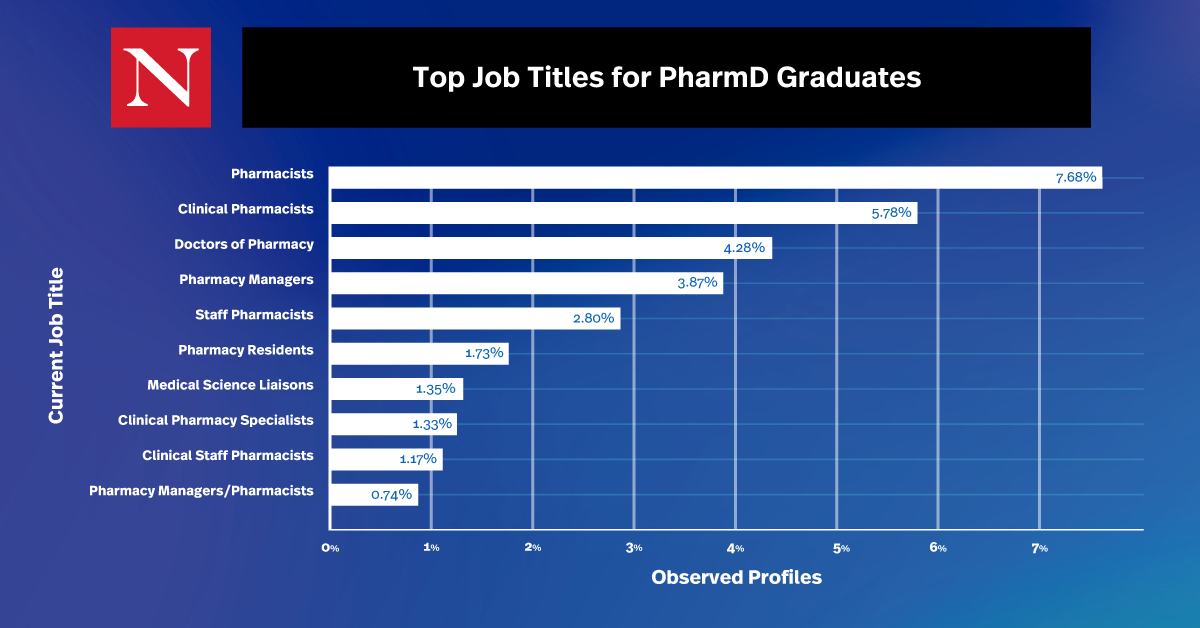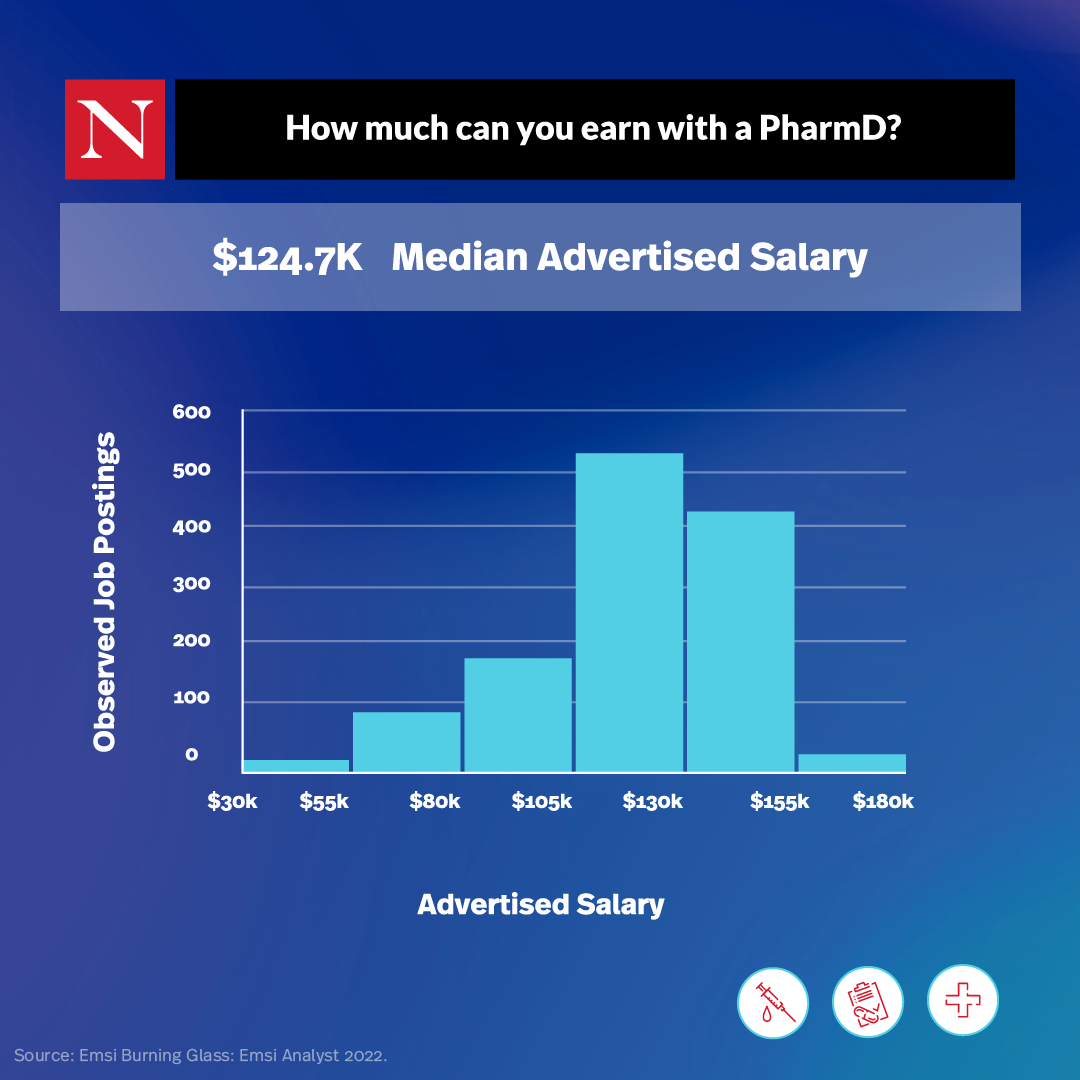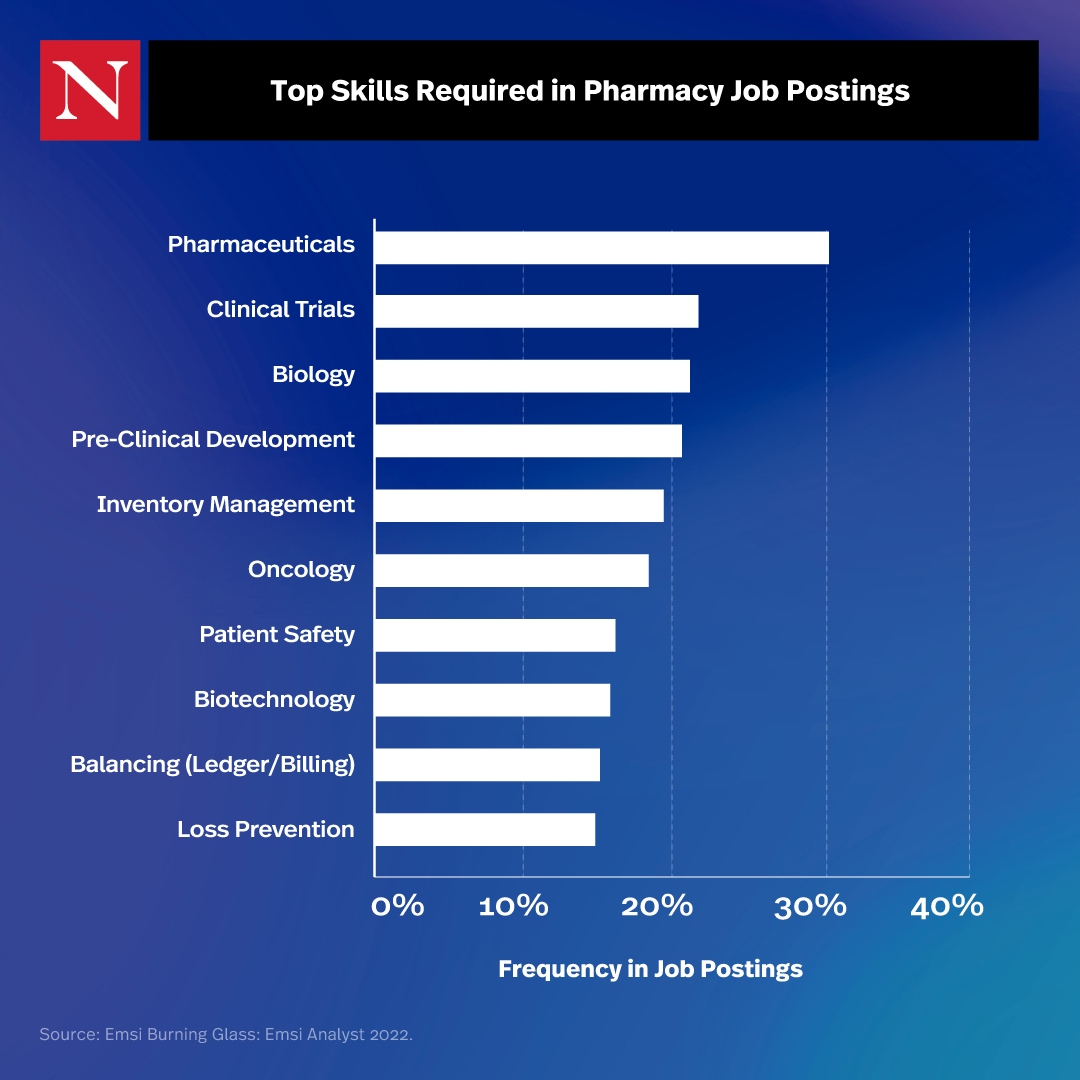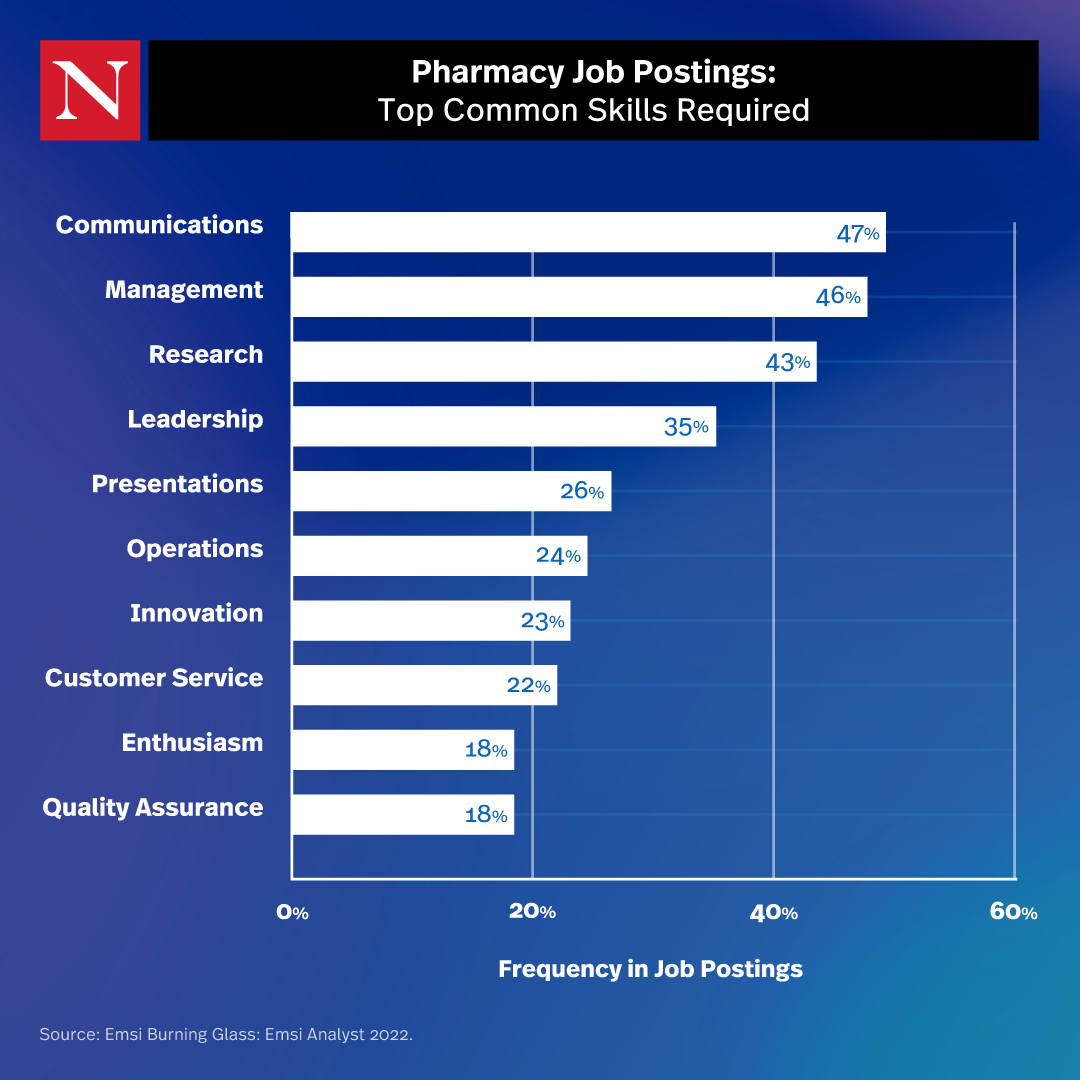Many people pursuing a career in healthcare today are wondering “is it really worth it?” Most paths to a medical profession aren’t cheap, and pursuing a degree in pharmacy is no exception. Therefore, it makes sense that you have questions about the return on this investment. The good news is that pharmacy is a highly rewarding career path that comes with several benefits. Below are seven reasons that a pharmacy degree is worth the expense.
Benefits of a Pharmacy Degree
1. Versatile Career Options
When you think of a pharmacist, you may picture an employee in a white coat working behind the counter of your local community pharmacy. While community pharmacists account for a large number of individuals who work in the field, your options are certainly not limited to this practice environment. The job market for pharmacists is full of traditional and non-traditional roles alike. Some of the career opportunities for pharmacists include:
- Working in health and personal care stores: Community pharmacists are typically found in health and personal care stores such CVS or Walgreens. Approximately 42.6 percent of pharmacists operate in this realm and typically handle over-the-counter medication distribution.
- General medical and surgical hospitals: Demand for pharmacists is high in hospitals. In fact, 21.1 percent of pharmacists work in a medical or surgical hospital setting. Furthermore, the U.S. Bureau of Labor Statistics (BLS) reports that although the overall job outlook for pharmacists is declining, demand for them in hospitals is expected to increase by 7.4 percent over the next ten years. These pharmacists have the opportunity to interact with and treat patients while working directly with a variety of healthcare providers to administer and prescribe medication.
- Grocery stores: An estimated 7.2 percent of pharmacists will find themselves working in grocery store pharmacies such as Wegmans or Winn-Dixie.
- General merchandise stores: Merchandise stores such as Walmart or SamsClub offer plenty of job opportunities for community pharmacists and account for 3.5 percent of the total industry occupation.
- Ambulatory care: Ambulatory care pharmacists typically work at a primary care office. These pharmacists generally deal with chronic conditions and work with different healthcare specialists to provide patient care. Approximately 5 percent of pharmacists work in an ambulatory care setting.
- Independent community pharmacies: Some of the most accessible pharmacists can be found in independent community pharmacies. These pharmacists have the opportunity to put their passion for pharmacy into practice and connect with patients on a more personal level. They also ensure the medications they provide are well-suited for the patient’s physical and financial needs.
- Pharmaceutical industry: Careers in the pharmaceutical industry vary, but are generally involved with the business side of pharmacy. Positions in the pharmaceutical industry can include the development and discovery of new medications, the design of clinical trials, and even the sales and marketing of new drugs.
- Pharmaceutical communications: Pharmaceutical communications deals with the advertising of the risks and benefits of new medications or therapies. Individuals who work in this field may find themselves in an agency setting or business in the pharmaceutical industry.
- Regulatory careers: One of the more non-traditional careers in pharmacy is a regulatory pharmacist. These pharmacists work to ensure that standards for patient care and protection are set and maintained.
- Academia: There are several academic opportunities that pharmacists who don’t necessarily want to work in a clinical setting can pursue. This includes academic research, or even a position as a professor teaching aspiring pharmacy students.
Download Our Free Guide to Advancing Your Pharmacy Career
Learn how a PharmD can give you the skills for success in the industry.
A pharmacy degree can result in job offers from a wide range of companies. The businesses that commonly look to hire pharmacists are personal healthcare stores, hospitals, or pharmaceutical companies. In the state of Massachusetts, for instance, the majority of job postings for pharmacists come from the following companies:
- CVS Health
- Walgreens
- Mass General Brigham
- Takeda Pharmaceutical Company
- Biogen
- Sanofi
- Massachusetts General Hospital
- Dana-Farber Cancer Institute
- Pfizer
- Vertex Pharmaceuticals
It’s important to remember that your first job in pharmacy will likely not be your last. Pharmacists frequently move into higher-paying or more specialized roles as they gain more connections and experience. Pursuing a pharmacy degree can also provide you with additional opportunities outside of pharmacy itself. In the state of Massachusetts, for example, some of the top jobs that pharmacy graduates list on their profile include roles like Medical Science Liaisons and Pharmacy Managers.

This list only scratches the surface of the professions available to pharmacy graduates, but it’s an excellent place to start. From insurance companies to community pharmacies, the job market for pharmacists is incredibly extensive.
2. Competitive Salaries
Pharmacists typically enjoy a comfortable annual salary. This can be very important in your decision to pursue a degree in pharmacy, especially if you need to apply for student loans. The average salary across the board for pharmacists is $128,710, although this amount can vary based on specialization or state. According to the BLS, the top paid settings for licensed pharmacists are:
- Ambulatory healthcare services: $137,820
- Hospitals: $131,290
- Food and beverage stores: $131,200
- Pharmacies and drug stores: $125,740

From a financial perspective, attending a pharmacy school can yield a high return on investment.
3. Acquisition of Important Skills
While most professions require certain skills for entry, it’s important to understand the different kinds of skills needed when pursuing a career in pharmacy.
Companies hiring pharmacists have common hard skills included in their job postings. Your pharmacy degree curriculum will provide many opportunities to obtain these competencies while enrolled in the program.
Some of the top hard skills companies are looking for include:
- Pharmaceuticals
- Clinical trials
- Biology
- Pre-clinical development

Having the right mix of soft skills—or common skills—is just as important when seeking a role as a pharmacist. Highlighting skills such as communication, management, and research on your resume act as an excellent supplement to your more technical skills. In the end, most applicants who have received a degree in pharmacy share the same hard skills from their respective programs. Soft skills could be the thing that sets you apart in the application crowd!

Finding a program that teaches these skills and offers experiential learning will help you acquire the blend of experience you need to be distinctive and desirable to potential employers.
4. Offers an Alternative Path into Healthcare
Careers in the healthcare field are highly competitive and come with intense educational requirements. On top of that, many of these positions are in high-stress environments.
As someone interested in nursing or medicine, but unsure of what path to take, pharmacy is an excellent option for you to consider. Similar to other healthcare professions, pharmacists have the opportunity to interact directly with patients and help them obtain a higher quality of life. Plus, a pharmacy degree does not require years of supplementary education that will only add to your student loan debt.
5. Greater Work-life Balance
Medical professionals such as doctors and nurses experience a large amount of stress that can lead to burnout, especially since the emergence of COVID-19. A recent survey estimated that approximately 76 percent of U.S. nurses have experienced symptoms of burnout since the start of the pandemic.
While nursing can be a rewarding and fulfilling field, pharmacy may be a better option for those who desire a greater work-life balance. Although some pharmacists may have to work nights and weekends, they typically have more flexibility and free time compared to doctors and other medical professionals.
6. Puts a Passion for Science into Practice
If you are interested in chemistry, biology, or other science-related fields, pharmacy school is a great place to help you put these passions toward a career. Even if you are not involved with the manufacturing of pharmaceutical medications, pharmacy careers require an in-depth understanding of the effects that different prescriptions have on patients and how different medications interact with one another.
7. Enables You To Make a Difference
One of the most appealing elements of the healthcare industry is the fact that healthcare workers are able to make a positive difference in the lives of their patients. If you want to have a career in which you have the chance to make a difference in people’s lives on a daily basis, pharmacy certainly provides that opportunity.
How To Become a Pharmacist
In order to become a pharmacist, you must obtain a doctorate of pharmacy (PharmD) degree. To start you must have at least a high school diploma or have already completed an undergraduate degree. From there you have multiple options available for you to complete your doctorate in 4 to 6 years.
Once you have obtained your PharmD degree, the next step is to pass two additional exams. These are the NAPLEX and a state-specific law exam. After you have completed these steps and any additional training requirements, such as internships and fieldwork, you can obtain your licensure and begin applying for jobs.
If you’re ready to take the next steps in your pharmacy career, take a look at Northeastern University’s School of Pharmacy and Pharmaceutical Sciences to discover how you can go about obtaining your graduate degree and licensure.







Related Articles
PhD vs. Master’s in Biomedical Science: What’s the Difference?
10 Top Careers in Biomedical Science
What is Medicinal Chemistry?